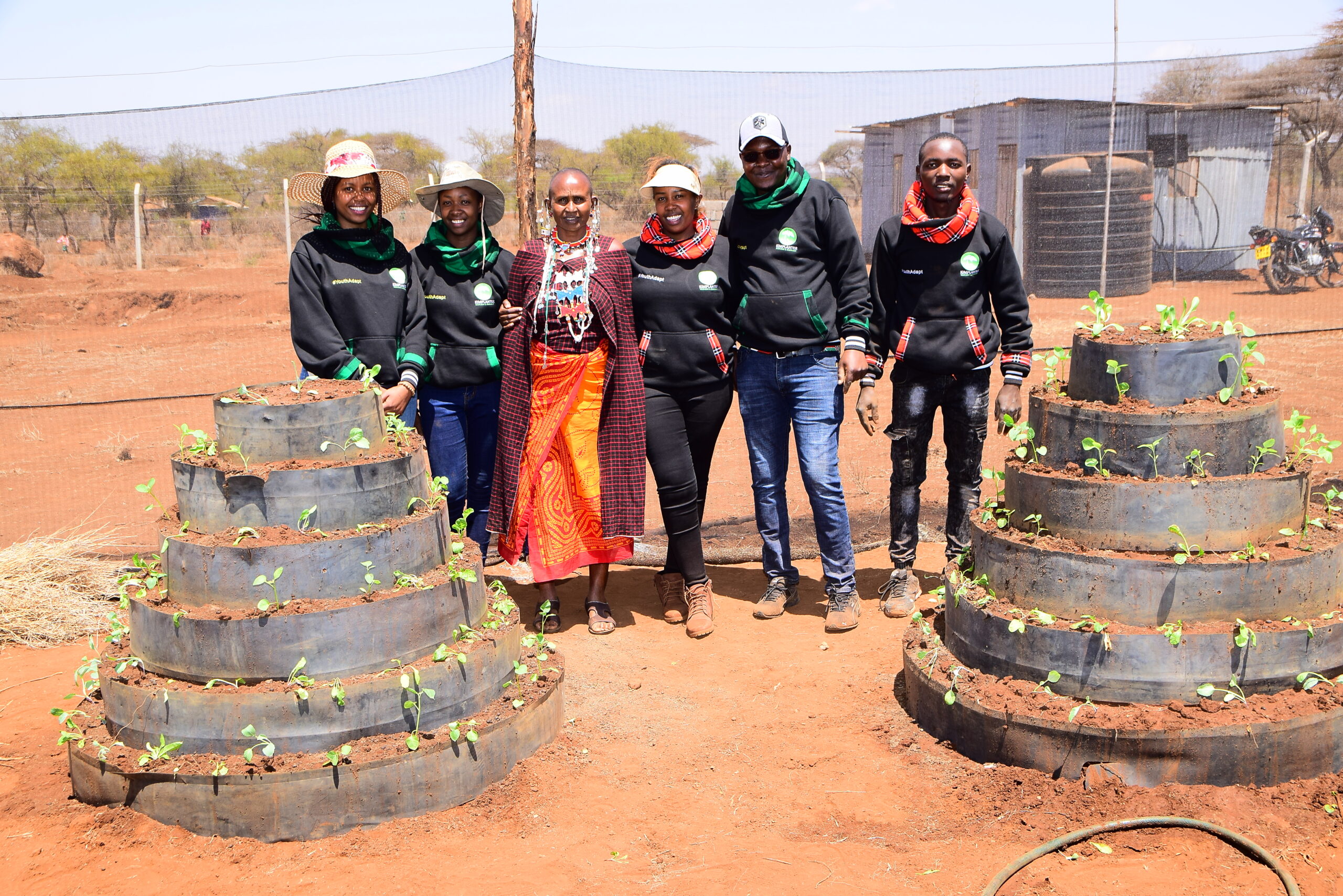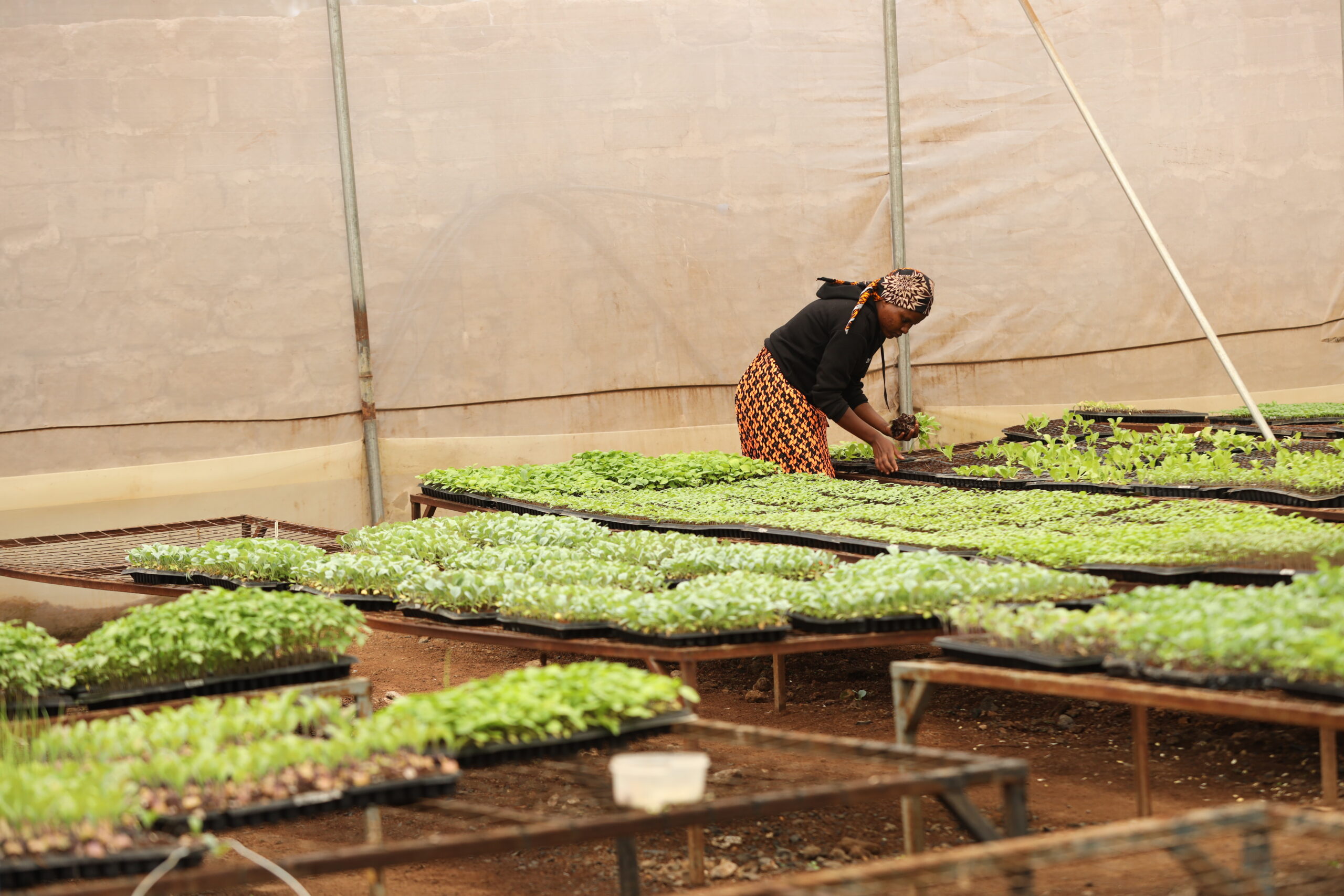“As a microenterprise, winning the YouthADAPT challenge means a lot to us”: Kimplanter’s Carolyne Mwangi reveals how YouthADAPT helped her company grow
The town of Ruiru, within the greater Nairobi Metropolitan region in Kenya, is home to Kimplanter, a unique seedling nursery led by youth and women that focuses on helping farmers improve productivity in spite of drought and harsh weather conditions as a result of climate change.
K
implanter, which propagates drought-resistant seedlings at affordable prices, was one of 15 winning enterprises of the African Youth Adaption (YouthADAPT) Solutions Challenge, an annual competition run jointly by the Global Center on Adaptation (GCA), African Development Bank (AfDB), and Climate Investment Funds (CIF) as part of the Africa Adaptation Acceleration Program (AAAP).
Organized to inspire and support youth-led adaptation solutions, YouthADAPT aims to harness the entrepreneurial spirit that Africa’s young people demonstrate towards creating solutions that the continent urgently requires.
After launching the competition in September 2021, GCA received more than 2,000 applications from 45 African countries. In November 2021, during a ceremony at COP26, GCA announced the 15 YouthADAPT challenge winners that would be awarded a $100,000 grant to further expand their solutions and business support through a 12-month accelerator program. The cohort of winners reflects a gender balance with more than 50% representation of female-led businesses.
Caroline Mukuhi Mwangi, the founder and CEO of Kimplanter, recently shared the invaluable benefits of winning the YouthADAPT challenge.
“As a micro-enterprise, this means a lot to us. It means growth for our company. It will increase the product range of the climate-resilient varieties that we are able to propagate for the farmers. It means increased sales, moving our company to another level,” she said.
Mwangi expressed that the smallholder farmers who Kimplanter works with are greatly benefitting from the trainings conducted thanks to YouthADAPT and because Kimplanter is able to bring on board the innovations that they really need to shift towards climate-smart agriculture.

In the town of Kimana, in the semi-arid region of Kajiado South, an area ravaged by drought and hunger, Kimplanter recently conducted training to empower 100 households run by Maasai women with knowledge and tools to establish climate-smart kitchen gardens where nutritious vegetables can grow with minimal water. Each household was provided with a vertical garden and requested to scale up the initiative by creating more gardens using locally available resources such as sacks, old basins, and plastic bottles.
As a small, youth-led organization, Kimplanter has faced many challenges since it opened its doors in 2014.
“Firstly, we have faced challenges in securing additional investments to scale our business to the optimal level of the market demand. Second, is the outreach to the farmers who really need our solutions. And thirdly, facilitating training and farm field days for these farmers [has been challenging],” Mwangi said
Mwangi explained that providing farmers with training on crop management and on how to incorporate different techniques of climate-smart agriculture to improve their yield while overcoming climate-related obstacles is crucial and can be provided as a result of YouthADAPT.
“So, we couple a product and a solution on how to manage that product for their optimal production, and if possible, we also provide a market for their produce – if they go beyond subsistence farming,” she said.

Because of the magnitude of YouthADAPT’s impact on her company, Mwangi said the initiative should be scaled so that more enterprises can benefit.
“The YouthADAPT initiative has been amazing and is quite effective for youthful businesses that are in the climate adaptation space. My plea to GCA and AfDB is if we can scale this [initiative] to reach as many youth-led businesses as possible for a multiplier effect whereby the local communities who are mostly affected by climate change are able to access solutions,” she said.
YouthADAPT’s goal by 2025 is to strengthen inclusive growth and broaden investment and economic opportunities for youth in Africa through entrepreneurial skills development by providing training, mentorship, and financing to youth-led businesses (50% women-owned) such as Kimplanter.
The program targets business leaders between the ages of 15 to 35, and the competition is open to participants from all countries in Africa. A new cohort of 20 winners of the YouthADAPT 2022 challenge will be announced at COP27 in Egypt next month.
The AAAP is an Africa-owned and Africa-led initiative launched jointly by GCA and the AfDB with the support of the African Union and African leaders. The AAAP is mobilizing $25 billion for adaptation investments in Africa in the next five years. GCA’s AAAP Upstream Financing Facility is mainstreaming the best climate adaptation science and solutions into programs across Africa. In its first year of operation, the Upstream Financing Facility has influenced more than $3 billion of downstream investments with Multilateral Development Banks in 19 countries across Africa.